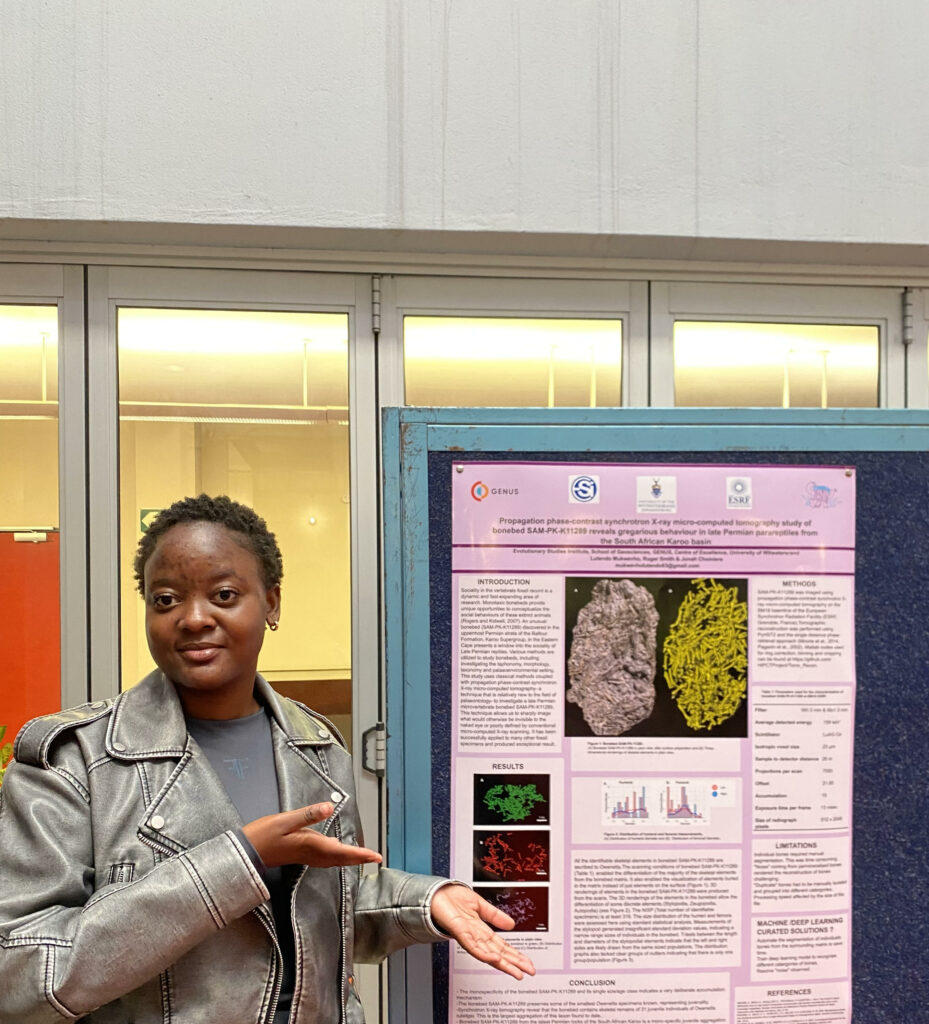Lutendo Mukwevho
Postgraduate Student (MSc)
Evolutionary Studies Institute
University of the Witwatersrand

Biography
I am an MSc candidate at the Evolutionary Studies Institute, University of the Witwatersrand. Being in the field is my favourite thing about palaeontology because it gives me an opportunity to explore palaeoenvironments.
Disciplines
Anatomy, Taphonomy, Palaeobiology, Palaeoenvironments
Fields of study
Therapods are a clade of bipedal, carnivorous dinosaurs whose direct descendants include birds. By understanding the evolutionary history of theropods, we can elucidate the macroevolution of the distinctive features that underpin their survival and diversity today. However, despite major scientific advances in theropod palaeobiology in the last 30 years, stem members of the theropod phylogenetic tree remain poorly known and poorly sampled, hindering our ability to decipher the early evolutionary steps in the line leading to birds. This undersampling is particularly acute in the early Mesozoic sedimentary sequences of southern Africa, particularly the Elliot Formation of South Africa and its lateral equivalents. These sequences document a time spanning from the end-Triassic to the Early Jurassic, crossing the end-Triassic Mass Extinction event. In doing so, they document an ecological transition when theropods rose from minor members of terrestrial ecosystems in the Triassic to become the dominant medium-large-size predators in the Jurassic [1]. Recent fieldwork in the Elliot Formation of South Africa and the Mpandi Formation of Zimbabwe has recovered new theropod dinosaur fossils that address this major gap in our knowledge, including two partial skulls and a variety of diagnostic postcrania. By studying this material using comparative anatomy, CT-scanning, and osteohistology, I can provide insight into the early phases of theropod evolution and the inception of the line leading to birds.
Awards and recognition
- NRF Honours in Palaeontology 2021
- CoE : MSc in Palaeontology 2022
